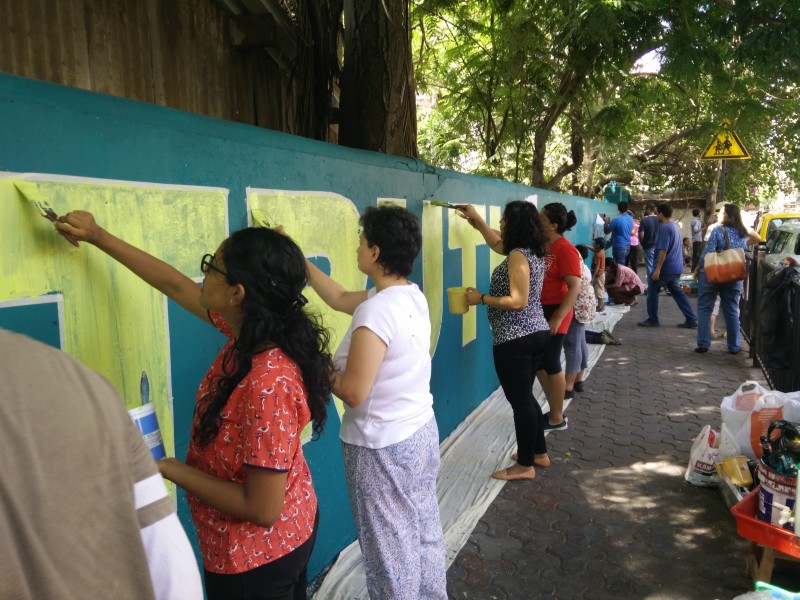Standing for True Solidarity
Article By Trishya Screwvala
 In many ways, the last decade can be considered a decade of protests – starting with the Arab Spring in 2010 and the Occupy Wallstreet Movement soon after, to the still ongoing clashes on the streets of Hong Kong, Venezuela’s uprising against its leadership and the widespread protests against India’s Citizenship Amendment Act, to name only a few that have occurred within the last year itself. As the number of demonstrations increased almost to a state of permanent protest in some part of the world, what is noteworthy is that several of these protests witnessed equally passionate demonstrators on both sides, often leading to anger and violent clashes.
In many ways, the last decade can be considered a decade of protests – starting with the Arab Spring in 2010 and the Occupy Wallstreet Movement soon after, to the still ongoing clashes on the streets of Hong Kong, Venezuela’s uprising against its leadership and the widespread protests against India’s Citizenship Amendment Act, to name only a few that have occurred within the last year itself. As the number of demonstrations increased almost to a state of permanent protest in some part of the world, what is noteworthy is that several of these protests witnessed equally passionate demonstrators on both sides, often leading to anger and violent clashes.
The very definition of protest is “a strong complaint expressing disagreement, disapproval or opposition”. At times of civic discontent and confusion, many of us take to the streets – Because we feel we are standing up for what we believe is right, or because we feel it is important to make our voices heard, to validate our views that are also held by many others.
With smart phones, social media and other technology today, it has become easier than ever before to galvanize large numbers of people with a common viewpoint. So much so, that often the measure of the success of a protest today lies in the number of participants garnered than in actual results. But perhaps one of the biggest pitfalls of being able to rapidly organize such impulse-led protests, is the lack of investigation to really examine the situation holistically, and the inability to offer real solutions.
It is far easier to respond to a viral video urging you to join a gathering to express your viewpoint, than it is to think systemically about change. It is more convenient to stand in a crowd holding a sign shouting what should not be, than it is to stand for what is needed. Moreover, the very act of choosing a side, can easily allow us to fall into the illusion of seeing only two extreme and contrary approaches, rather than an altogether alternative narrative that actually considers the nuances of a situation with all the shades of grey in between.
While it is true that plurality of opinion and freedom of expression are fundamental criteria for progress, we must recognize that with this freedom comes responsibility. To exercise this liberty, we need discernment. The ability to voice any opinion without thought, verification or concern for its consequences can be dangerous, and we have seen its ramifications through social media trolling and fake news. Without a sincere pursuit of truth, the need to objectively examine the problem from both sides before fervently expressing subjective opinions with only a superficial understanding of the circumstances, can result in temporary solutions, and worse, create confusion and distrust.
With social media curating content we view daily to corroborate our already existing opinions, whether through Facebook’s friend recommendations based on common interests and backgrounds, or the narrowcasting of news information instead of broadcasting, it should be no surprise that we see a dramatic increase in extremism and intolerance in our world today. Harvard Professor Cass Sunstein reveals that the more we surround ourselves with people sharing the same view as us, the more extreme we tend to become. (2) As a result, we lose our very essential ability to empathize with others. We are so busy contentiously arguing over what divides us that we are unable to see the commonalities that hold us together. And because we are so taken by our narrow personal perspectives, we fail to even recognize this blind spot.
Is it therefore possible that our seemingly well-intentioned participation in demonstrations can actually contribute to more divisiveness? Can dissent alone really offer a plausible way forward? Perhaps we need to look beyond the momentary self-satisfaction of joining a protest, where we feel we have acted productively and contributed towards a positive future, and instead recognize that in reality, when we protest, we are simply voicing an opinion.
Additionally, we need to carefully explore multiple perspectives in order to come closer to the truth, and ensure our actions are not motivated by our own personal interests or latent fears. It takes effort and investigation to truly consider opposing points of view, before rejecting them based on our impetuous assumptions. Can we learn to not just tolerate, but genuinely embrace alternative outlooks, while still remaining loyal to the common good? Rather than clutching onto our impassioned opinions, interests and backgrounds that we think bind us, perhaps we need to recognize that these seemingly shared realities can easily become blinders that only intensify separation.
Beyond our political inclinations, our religious backgrounds, or our genders, there lie far more essential and fundamental values that unite us. But to discover them, we need to look deeply within and discover what makes us human: our search for happiness, our recognition of goodness, truth and beauty, our inherent nature to be generous and compassionate. And most importantly, the recognition that we are all part of a single interconnected web of life; that we are drops as well as the ocean, an individual human being, yet at the same time, intrinsically part of the ocean that we call Humanity. The strength, clarity and conviction that comes from this simple yet profound realization, is perhaps what can lead us towards true solidarity, in pursuit of truthful, sustainable and inclusive solutions, which we try so hard to come close to, each time we take part in collective expressions such as protests.
Image Credits: By CJMM | Pixabay | CC BY PD
If any images used in this article are in violation of a copyright, please get in touch with [email protected] as soon as possible. Appropriate action will be taken.Image References
By CJMM | Pixabay | CC BY PD
Article References
eferences: Cambridge International Dictionary of English. Cambridge University Press. Cambridge. Sunstein, Cass R. Going to Extremes: How Like Minds Unite and Divide. Oxford University Press. New York. (2019).




What do you think?